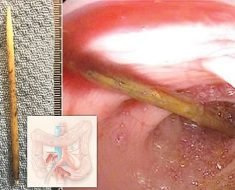The extra stillness may make a person more aware of their body than they are during an active day.
With this increased awareness, people may begin notice that their eyes are itchy.
Causes

Many underlying problems and conditions can cause itchy eyes at night.
These underlying causes include:
- Eyestrain: Caused from staring at a computer screen for too long or driving long distances.
- Allergies: Contact with a foreign substance that causes itchy, red eyes, such as makeup, pollen, and dander.
- Dry eye: A condition where the eye does not get enough lubrication throughout the day.
- Atopic dermatitis: A type of eczema that causes red, itchy skin as well as dry eyes.
- Conjunctivitis: A highly contagious infection often referred to as pink eye that causes red, itchy, and burning eyes.
- Blepharitis: Inflammation of the eyelid caused by the follicle becoming blocked.
- Meibomian gland dysfunction: When the meibomian glands are blocked and do not produce enough liquid to lubricate the eyes.
- Some medications: Common culprits that can cause dry eyes include antihistamines and blood pressure medication.

Some home remedies can help treat and prevent itchy eyes at night including:
- applying warm and cool compresses
- keeping the eye area clean
- using a humidifier
- avoiding allergens
- using eye drops
- following the 20-20-20 rule
The 20-20-20 rule
Spending too long on a computer or doing other activities that may cause eyestrain can make a person’s eyes itchy at night. People with itchy eyes can try to follow the 20-20-20 rule to lessen eyestrain.
For every 20 minutes of computer work, people should look away from the screen and look at an object 20 feet away for 20 seconds, which will allow the eyes to relax.
Warm and cool compresses
People can try applying a compress for immediate relief of itchy eyes. Warm compresses over the eyes may help relieve itching due to allergies. If itchy eyes feel warm and swollen, a cold compress on the eyes might help ease the itch.
Keeping the eye area clean
Dirt, chemicals, and makeup can all cause itchy eyes.
Keeping the eyes clean at night can help relieve the itch. Firstly, a person may need to flush the irritant from the eye with cool water to clean the eye area.
Sometimes, gently rinsing the eyes with warm water on a washcloth may be enough.
People who wear makeup should consider removing all their makeup before cleaning the eye.

Sometimes, over-the-counter (OTC) treatments do not ease itching.
Some people may require medical treatments including the following:
- oral and topical antibiotics for bacterial infections, such as bacterial conjunctivitis
- artificial tears to lubricate eyes
- antihistamines to help control allergic reactions that lead to itchy eyes
- steroid eye drops for blepharitis and allergies
- medications that affect the immune system for blepharitis
- mast cell stabilizers for allergies
- allergy shots for people with more severe allergies
Avoiding triggers
Preventing itchy eyes at night often starts with figuring out what might be triggering them. Some people may find keeping a journal of potential triggers helpful in figuring out what to avoid.
Avoiding triggers can help prevent or at least reduce the number of instances where the eyes become itchy.
People can take some steps during the day to help prevent eyestrain that can cause itchy eyes.
Some steps include:
- taking breaks when driving long distances
- wearing polarized sunglasses when outside or while driving
- reading in well-lit areas
- taking breaks when working at a computer or staring at other screens for long periods of time
- using artificial tears throughout the day
- wearing contacts or glasses
- positioning computer screens slightly lower than eye level and about a foot from the face
People may try the following if allergies are the cause:
- reducing mold in the home through cleaning and using a dehumidifier
- keeping windows closed at night and during the day
- removing eye makeup thoroughly before going to bed
- cleaning up pet hair regularly
- using bedding that blocks dust mites
- avoiding touching the eyes before washing hands, especially after being in contact with a trigger, such as pet hair
A person can avoid some diseases, such as pink eye, by avoiding physical contact with a person who has the condition and not sharing products that come in contact with the eyes of other people.
What is the outlook?
Most cases of itchy eyes at night are not serious and are easy to treat. People who experience eyestrain and allergic reactions can often prevent them occurring by avoiding activities or substances that trigger itchy eyes.
When blepharitis causes itchy eyes, treatment focuses on managing the symptoms. Often, blepharitis does not go away completely, but proper treatment and good hygiene can keep symptoms to a minimum.
Source: Read Full Article





